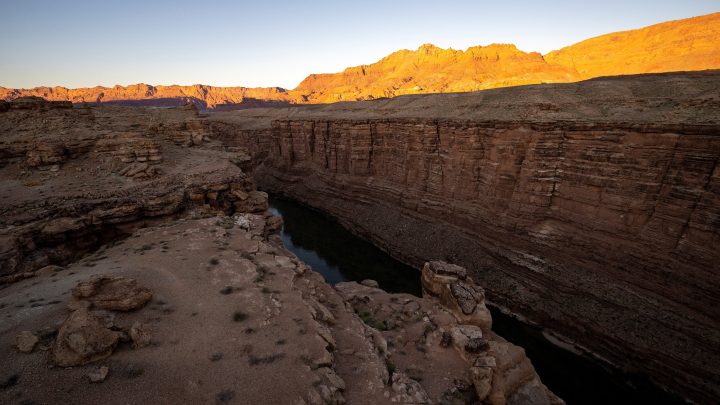
Water managers float idea of paying farmers to reduce use of Colorado River
Water managers float idea of paying farmers to reduce use of Colorado River

Leaders from the seven Colorado River basin states gathered in Las Vegas last week and received another dire warning about the state of the river. Federal officials say the river’s dwindling reservoirs could be just two years away from “dead pool” levels — meaning they could no longer supply hydroelectric power.
The basin states have until the end of January to agree on massive water conservation or the feds say they’ll impose cuts.
One solution that’s come up: managing demand by paying users — particularly farmers — to leave water in the river.
Farmers and ranchers use about 80% of the Colorado River’s water. They also hold some of the most senior and entrenched legal rights to that water.
Rights that it seems the federal government would rather not challenge, according to Sarah Porter with the Kyl Center for Water Policy in Arizona.
“There’s an open question whether the federal government has the authority to cut deliveries,” she said.
Paying users to leave water in the river is a lot easier than taking this issue to court, she said. “I don’t think that there will be enough uptake to stabilize the system.”
So far, water managers have proposed using federal money to pay producers between $100 and $400 per acre-foot of water conserved. An acre-foot is the amount of water needed to cover an acre of land a foot deep.
“Producers are gonna have to do some math and see if it pencils out,” said Kyle Roerink with Nevada-based Great Basin Water Network.
Some farmers and ranchers could lose money by allowing their water to prop up reservoirs, he added.
“But the gambit is, well, will the system crash?” — meaning there’s not enough water to fulfill everyone’s rights. “And then, ‘Will I be subject to some other type of regime?'” Roerink said.
A regime that won’t be as friendly to agriculture. Managing demand with federal payments could help in the short term, said Andrew Curley, a professor of geography at the University of Arizona.
“Whether or not it fundamentally changes the culture of water usage in the Colorado River, I think there needs to be more done.”
That culture change is necessary because we need long-term answers.
“Some of these solutions are trying to rearrange chairs on the Titanic,” he said — instead of dealing with the fact that the ship is sinking.
There’s a lot happening in the world. Through it all, Marketplace is here for you.
You rely on Marketplace to break down the world’s events and tell you how it affects you in a fact-based, approachable way. We rely on your financial support to keep making that possible.
Your donation today powers the independent journalism that you rely on. For just $5/month, you can help sustain Marketplace so we can keep reporting on the things that matter to you.











